- Home
- Anson Cameron
Pepsi Bears and Other Stories Page 11
Pepsi Bears and Other Stories Read online
Page 11
Who among us would not belt the daylights out of a spinster after such a vandalism? I only ask, who would not throttle and thrash a saboteur so aged and frail and therefore so easy to throttle and thrash?
She is nodding cheerily down at her right shoe besmirched triumphant in that crater of turd. She is looking around at the interstate dupes scraping shit from their hair, when Mal Rutherford gives off a whimper and comes at her from behind. He has his fingers deep in the wattles of her throat before she can say ‘Amen’. They lose their footing and go down, kicking and rolling in the green muck, the farmer choking and shaking the spinster and crying over his lost miracle. He is ashamed to be throttling a pious hag and rattles her head back and forward with the shame.
The rapture of the Christians curdled to spleen when they were speckled with turd. Now they see Mal Rutherford has her in a death lock they begin to shout encouragement. Above his own grunts and the croaks and the whistles of Old Ms Harris he can hear their barracking.
‘Damned old bitch.’
‘Heretic.’
‘Kill her.’
‘Choke the old mole.’
‘Go, Bigfella. Go. Half-Nelson, commando style.’
Being an atheist, Rutherford is amazed and angry that Christians can shout such hateful things and his anger at their wrongheadedness makes him let go of Old Ms Harris. He doesn’t want to commit any act they might endorse. He stands above her, panting, and would help her to her feet if she were conscious. He glares around at the crowd which, now the action has stopped, feels embarrassed and shocked at its own hateful nature. Many of them look around at the milking machines, feigning an interest. Some stare up at the metal superstructure of the shed. All of them begin to drift outside, away, gone.
Having worshipped a fake saint and been splattered with turd and then caught out willing the death of an old lady, they have not enjoyed the Revelatory Experience Mal Rutherford’s brochure promised. Now he starts to yell at them. ‘Yeah, go on. Get out, ya pack a’ bastards. Go on … piss off. I made it meself, anyway. Hear that? I done it meself with a trowel and a picture of Derryn Hinch I cut from Who Weekly magazine. You think a cow could do it? You idiots. A cow’s got no more idea of historical figures than a beaver does. Cows shit shit. I seen a million shits cows shitted and never so much as Popeye the Sailor Man in any of ’em.’
None of the Christians calls for a refund on their way out, though a few spin their tyres and throw gravel as they accelerate down Rutherford’s driveway.
Old Ms Harris dies covered in the muck that had been St Paul. Mal Rutherford calls the police himself, and when they arrive he thrusts his hands toward them to be cuffed and tells them he snapped. Tells them, ‘Look in the milking shed. She’s in there … It’s not … it’s not pretty.’ As they drive away with him in the paddy wagon a young detective posted from the city with schoolboy French and toilet humour begins to say quietly in a French accent, ‘Ze merderer. Ze merderer. Ve arrest ze merderer.’ And is blinked at by his detective inspector and told to shut the hell up.
Hearing of the vicious debacle that has taken place at Rutherford’s dairy, Christians lose faith in the local wonderments. They are suddenly revealed as a blasphemy and their owners are scowled at in the streets of Korumburra. This worship of graven images has gone far enough. It has cost a pious old lady her life. And, anyway, what type of idiot believes the Lord, maker of the marvellous, endless heavens, would reveal himself on a cow’s plumage? Jesus’ face is more likely to be displayed in a galaxy-wide supernova than on the belly of a beast. The idols were false. The rush is over. There is only the Church now.
Whose next function of note is Old Ms Harris’ funeral. One takes comfort in the certainty the Church will not succumb to cheap and reflexive payback. One feels happy knowing the Church will not perceive this ceremony as a golden opportunity for revenge and a free swing at those who have strayed, and will not go to work on her mourners with the glee of an inquisitor. But then, one is annually happy at the imminent reappearance of the Easter Bunny.
Its interior is hung about with black crepe and the mourners sit fidgeting, stifling their coughs and swallowing their phlegm in stoic silence, stealing glances at Old Ms H who is propped in a casket lined with red silk, still giving off an antiseptic air and wearing a neck-brace and a pout as if she is dreaming of burnt scones. At intervals during the service Father Gould goes to her and pats her like he might a puppy whining for reassurance. She was a Founding Disciple of the Church Community Group and Bishop Fairall is in attendance.
Father Gould has his mojo back, a big smile reconstructed from ear-to-ear. The people are beaten and have been dragged back like guilty sheep in their best track-suits. The Church owns God again. The priest’s tattoos are covered and forgotten.
From the pulpit he looks down on the mourners, before pointing at Eunice Stronghold. ‘Eunice, how now the Nigerian choir?’
‘Disbanded, Father. In light of …’
Father Gould nods. Just so.
‘Tim Watson,’ he points at the farmer. ‘Have you set aside the melon?’
‘I have, Father. Eaten.’
‘And do you feel foolish to have believed in a fruit, Tim? Do you feel … you have worshipped falsely? Unwisely? Like a heathen, or a brute?’
‘It wasn’t the worst, Father. It was better than that Noah in Paynesville. Everyone said it was a dead ringer for Mary.’ He sees his priest scowling. ‘But, yeah, turned out probably it was fly-blight and not her.’
Father Gould glares at the mourners, so foolishly bewitched. ‘A melon,’ he tells them. ‘Afflicted with blight.’ He lets this sting awhile. ‘Oh … Let us pray.’
After the prayer Father Gould says softly, ‘Martha Harris loved God.’ He opens his palms to the ceiling, the Church, wherein God. Then he glowers and shouts, ‘And because she loved God she despised melons masquerading as His messengers.’ Father Gould snatches up a watermelon he has hidden by his feet in the pulpit and casts it into the aisle where it breaks open and its moist flesh is exposed to the thirsty congregation. Children are held in their seats by their parents. ‘She abhorred Friesians strutting like cherubim, did Martha. And the goat choir was, to her, a morbid cacophony proving what perfect fools her neighbours could be.
‘But Martha Harris, being good, being Christian, could see good in others. Martha Harris would say, if she were here now, and she is, and I can hear her, “Forgive them, Father. They are home again, in the bosom of the Church. They have strayed. But they are home. Forgive them.” She speaks as Jesus would. No surprise. For if any in our shire were marked with the sign of Our Lord it was not the melon, nor the boar, nor the glutinous stool of the milker … it was Martha Harris herself, marked by His compassion and His courage. Martha Harris became my whole congregation while you people wandered among the freak shows whinnying at claptrap as if it were revelation. And … then … Martha Harris walked out alone to strike down blasphemy.
‘And in her triumph over that false Paul she paid the ultimate price. Covered in excrement … she crossed over. No state to meet the Lord, you think; slathered with cow-doings instead of dressed up in your Sunday best. Wrong. For I know this: they that arrive at the gates of heaven and make petition to St Peter while covered in the gore of false prophets are welcomed as champions and hosannas speed their entry, and those good few take a special place beside Jesus. Which is where Martha Harris sits now.’
His congregation, those few who are listening rather than coveting the flesh of the smashed melon with their tongues lolling, have an image of Old Ms Harris sitting next to a perfect Jesus on a cloudy couch; him radiating light, goodness, wisdom … her in a neck brace and covered in cow-turd. In their imaginations Jesus’ nose wrinkles and his buttock cheeks grip at the cloud and creep surreptitiously, left, right, left, right, away from the spinster along the couch.
Despite the parishioners not believing Old Ms Harris quite deserved a place cheek-by-jowl with the Lamb of God, they do appreciate her sacrifice. Ha
ving listened to Father Gould’s eulogy they believe a saint has walked among them. They recognise her foresight and her clarity. She saw shit where they saw sign and, by giving up her life, she was able to pull the scales from their eyes so they too could see shit. They want to thank her. Not just in prayer, but in perpetuity.
Many of them have been up to Melbourne at least once and seen the statue of St George slaying the dragon, the fanged beast lanced but striking up at the armoured warrior, his horse rearing. Good defeating Evil with every new rising of the sun. And they have seen the statue of Archbishop Daniel Mannix, God’s first Australian champion, his punishing gaze weighing like a month’s penance on any passing Catholic. They petition the Church that Martha Harris be canonised and propose a statue of her be placed in the grounds of the church. They imagine that woman as Korumburra’s glory, cast twice life-size, her back somewhat straightened, the truth somewhat bent, smiling in victory with her foot deep in a defeated bronze turd.
Father Gould, having to live among these people, does not fall about laughing as they present him with their petition. The Church hierarchy in Melbourne, naturally enough, does. They roll on their flagstones kicking their sandals in the air and delight at the innocence and gullibility of their rural flock. Those parishioners, they tell each other, they are our strength and our shame. They are our lifeblood and our embarrassment. They are fools and sheep.
The request for canonisation is immediately binned by a laughing Bishop Fairall. He is glad to see it gone for its extreme hilarity has caused in him a worrying lapse in bladder control that spots his vestments and makes him late to bless a bridge. A message is sent via Father Gould to tell the flock a sub-committee of patriarchs has been raised to put the petition through the proper rigours of examination. The proper rigours of examination are not to be rushed.
Indeed. There is a village called Falluriah in southern Spain that has waited since 1905 for the beatification of the man who drove a gang of evil spirits from the place by performing a Blessed Week of Cacophony in staying awake for seven days and seven nights using the ingenious method of putting sand crabs in his underwear and cocaine in his sangria and keeping those evil spirits from alighting in their favourite haunts by banging pots whenever they were ready to alight or his scrotum was nipped. And Ernesto Madjik will look handsome in bronze, if they don’t portray him snatching at his crotch and crying out in pain, for he had a strong jaw and thin hips.
In the village of Clarbec in Normandy, France, they await the beatification of Francois Jilbardt, a wine-glutton who in 1896, while wandering home from his local cafe at midnight, doused, with his limitless stream, a molten meteorite that had crashed into the convent, thus saving the nuns of Clarbec from a fiery end.
These triumphs, though no less heroic than many others that have been rewarded by the Church, are more socially difficult. Thus the villagers wait on, year after year, for their heroes to be canonised and their reputations enhanced and their streetscapes dignified.
Add to these villages the town of Korumburra. For she now waits to be acknowledged and celebrated as the birthplace of Martha Harris, Australia’s newest saint, and she looks forward to that spinster’s second coming, in bronze. Her inhabitants often speak of that future day when they will have their heroine standing true against the sun for the young to squint at in wonder. They are not impatient. They know their case is strong.
Mister Bruce.
At dawn on September 19, 1994, the megapods on the slopes of Tavurvur abandoned their nests. Dogs in the town began barking incessantly, scratching and sniffing the earth. Along the beaches sea snakes came ashore. These dread portents of Matupit folklore were enough for the population of Rabaul to flee their homes through the copra plantations into the jungle and be saved.
Later that day Tavurvur blew a billion tons of ash into the air and as it rained greyly onto Rabaul buildings began to collapse under its weight, making the death of the town sound like a slow artillery duel. By nightfall this place of gardens and groves was entombed. The tips of power poles poked from the ash showing where streets ran below. Occasionally a roof jutted above the grey flood, and the customs house, which had been three storeys, was now two, its first floor now at ground level.
The Hamamas Hotel was buried, but its owner saw only new beginnings. Standing above it, leaning on its steeple, draining ash through his fingers, he told his manservant Expendable Buloo, ‘Fetchim olgeta onetalk bilong yu na rousim ol dispela trash.’
Mister Bruce was born a pharaoh in Queensland. But Australia being an effete country, its governance codified and sanitised, he was forced to search the world for his Egypt. He found it in PNG, where there were no laws against making oneself omnipotent. The people Mister Bruce enlisted to be his Egyptians were the Matupit, a purple-skinned clan from out near Bougainville who were bewitched by his use of high-explosives, firearms, poisons, quarter-horses and Rottweilers, his victories over crocodiles, and his ingenious work in artificial insemination using the copper coil from a gas fridge.
It takes the Matupit a month to dig the Hamamas Hotel out of the ash, while Mister Bruce rides among them on a quarter-horse like Lord Carter, handing out barley sugar and taking potshots at second cousins of rumoured looters. Just as the excavation is complete he encounters two pigs browsing on Mango Avenue outside the hotel. He dismounts and tells those pigs to go ahead and make his day, and when they don’t he tells them to fill their hands with lead and calls them sons of bitches, before trouncing them in a gunfight and donating them, along with a ute-load of beer, to the Matupit for a thanksgiving moomoo. At the height of this revelry of pork and SP Lager, as the Matupit are a Christian people he bribes the police to let them into the local lock-up to reason with sinners using a smorgasbord of martial artistry learnt from Jackie Chan repeats. Typical of Mister Bruce, and a kindness the Matupit whisper about for years.
Once disinterred the Hamamas stands like an oasis in the desert, surrounded by a desolation of tree trunks, twisted metal, corrugated iron humpies and wandering Matupit with ash as fine as talc rising at their every footfall. Across Rabaul a shanty town of salvaged materials is pieced together by the locals. But still the ash continues to fall. God’s greatest chimney stands above the town, and every day a potpourri of sulphur and pumice rains down. Nothing grows. The tourists don’t return. If you visit the Hamamas for yum cha, within an hour your vehicle will resemble a rhinoceros in its thick grey hide.
Before the eruption Rabaul’s lifeblood had been American tourists. But the hotel has few paying guests now and is losing money by the day. Still, Mister Bruce, his wife Suzie and their daughter Rosie remain. Because if Tavurvur goes to sleep, if the ash stops, the town will rise again, its greenery unfurled. Paying Americans will return to this famously beautiful place and the Hamamas will once more be a resort. They hang on. Tomorrow, or some day soon, the ash will stop. It would be a tragedy to cut and run, only to have the ash stop and the town come alive. So, one more week. One more day. Tavurvur must stop. For ten years they hang on as the ash falls.
What could lure cruise ships of moneyed Americans to this wasteland? What could raise this city out of the ash and place it up again before the eyes of the world alongside Paris, Venice, or Mooroopna? Mister Bruce, President of the New Britain Tourism Board, wrestles with this problem day and night. Rosie emails The Wiggles, but the tropics being no place for men in skivvies they decline a residency at the Hamamas. The keys to the city are jangled before Mr Bernie Ecclestone, but perusing Google Earth he sees no F1 circuit in Rabaul and stays faithful to Monaco.
With a hundred other festivities turned to dust in his hands, Mister Bruce falls back on that most proletariat of self-inflicted major events, the Fun Run. He decides to hold a marathon. Like Boston. Like London. Pamphlets are nailed to a thousand coconut palms and he is chauffeured up and down the coast in his Landcruiser to advertise the run through a bullhorn to startled nationals as he speeds past. ‘Yupela all pippia heads, come huddy up na wokim Fun Run.’
He has captured a 21-foot-long Vickers, Sons & Maxim six-inch coastal defence gun stolen by the Japanese after the fall of Singapore and shipped here to defend Rabaul against the Sixth Fleet. A great virgin piece, which once crouched in Singapore lusting to spit hellfire at Japanese battleships and then crouched in Rabaul lusting to spit hellfire at American destroyers, now sits hunkered and edgy out front of the Hamamas, designed for, deserving, and awaiting a World War. Mister Bruce is going to use this gun as the starting pistol for his fun run.
He mixes a batch of gunpowder using heat beads, sulphur and potassium nitrate in a PVC canister and inserts bare wires, positive and negative, nestled into steel wool. Expendable Buloo tamps the charge down the barrel of the cannon while Mister Bruce absents himself horse riding. On top of the charge he instructs Expendable Buloo to pour petrol and coconuts and scrap-iron. An extension cord leads from the gun to the Hamamas’ kitchen where all Mister Bruce has to do is flick a switch to start the race.
Outside the Hamamas at seven o’clock on the morning of the run, while Expendable Buloo blows a trumpet, Mister Bruce lobs three-hundred pairs of flood-relief Nikes into the crowd from the back of a ute. These shoes are distributed among the Matupit via a contagion of scuffle and affray until six-hundred people, some bleeding too badly to run, have one shoe apiece.
Having never worn shoes at all, the wearing of only one Nike is a tricky initiation into modern athletics for the Matupit. The crowd of men staggers and limps in circles – amazed, struggling to hold a straight line, delighted as they curve off the road and crash into each other, as though travelling under the instruction of some hilarious djinn. They giggle and shout, ‘Lookim legs belong mepella,’ proud to be the most deeply bewitched, exaggerating the bias and spasticity inflicted by their single Nike. Reporters flown in from The Cairns Post and Papua New Guinea Post-Courier begin taking photos while Mister Bruce swears under his breath.

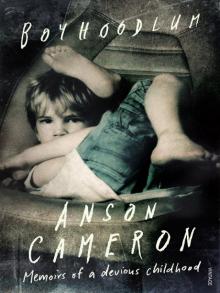 Boyhoodlum
Boyhoodlum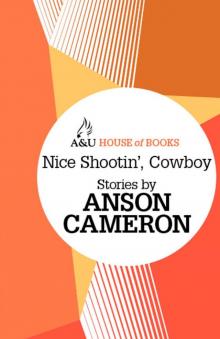 Nice Shootin' Cowboy
Nice Shootin' Cowboy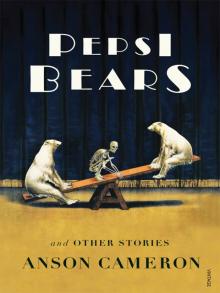 Pepsi Bears and Other Stories
Pepsi Bears and Other Stories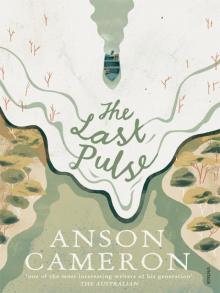 The Last Pulse
The Last Pulse Stealing Picasso
Stealing Picasso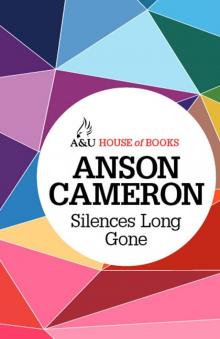 Silences Long Gone
Silences Long Gone